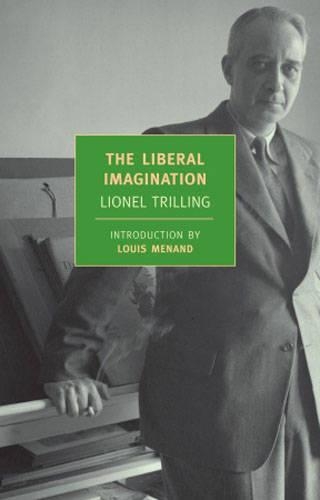
The Liberal Imagination
(Paperback, Main)
Publishing Details
The Liberal Imagination
By (Author) Lionel Trilling
New York Review Books
NYRB Classics
15th September 2008
Main
United States
Classifications
Tertiary Education
Non Fiction
809
Physical Properties
Paperback
320
Width 17mm, Height 202mm, Spine 129mm
342g
Description
The Liberal Imagination is one of the most admired and influential works of criticism of the last century, a work that is not only a masterpiece of literary criticism but an important statement about politics and society. Published in 1950, one of the chillier moments of the Cold War, Trilling's essays examine the promise -and limits-of liberalism, challenging the complacency of a naive liberal belief in rationality, progress, and the panaceas of economics and other social sciences, and asserting in their stead the irreducible complexity of human motivation and the tragic inevitability of tragedy. Only the imagination, Trilling argues, can give us access and insight into these realms and only the imagination can ground a reflective and considered, rather than programmatic and dogmatic, liberalism. Writing with acute intelligence about classics like Huckleberry Finn and the novels of Henry James and F. Scott Fitzgerald, but also on such varied matters as the Kinsey Report and money in the American imagination, Trilling presents a model of the critic as both part of and apart from his society, a defender of the reflective life that, in our ever more rationalized world, seems ever more necessary-and ever more remote.
Reviews
This collection of essays, on subjects as diverse as Wordsworth's Immorality Ode and the Kinsey Report, is still wonderfully exciting, serious but never solemn, and of course, exquisitely written. Oldie
Author Bio
Lionel Trilling (1905-1975) was an American literary critic, author, and University Professor at Columbia University. Among the most influential of his many works are two collections of essays, The Liberal Imagination and The Opposing Self; a critical study of E.M. Forster; and one novel, The Middle of the Journey. Louis Menand is the Robert M. and Anne T. Bass Professor of English and American Literature and Language at Harvard University, and a staff writer at The New Yorker. He is the author of The Metaphysical Club-which won the Pulitzer Prize for History and the Francis Parkman Prize in 2002-and of American Studies, a collection of essays.
